Industrial Wastewater
Spec-Imaging and Stena Recycling Advance Water Analysis with New Technology
Lund, Sweden – Spec-Imaging is proud to announce an advancement in water quality analysis through our collaboration with Stena Recycling. By leveraging our innovative IC-VIS spectrophotometric technology, we are transforming how water quality is measured—enabling direct analysis of turbid water without the need for dilution or extensive sample preparation. This advancement significantly enhances efficiency, reduces costs, and improves decision-making for water management.
Our IC-VIS instrument is built on the well-established principles of spectrometry, but with a unique advantage: it delivers reliable analyses even in highly turbid liquids, surpassing the limitations of conventional methods. Stena Recycling has successfully tested the technology on various water samples, using it to measure critical parameters such as phosphorus levels in wastewater, allowing for optimized treatment processes.
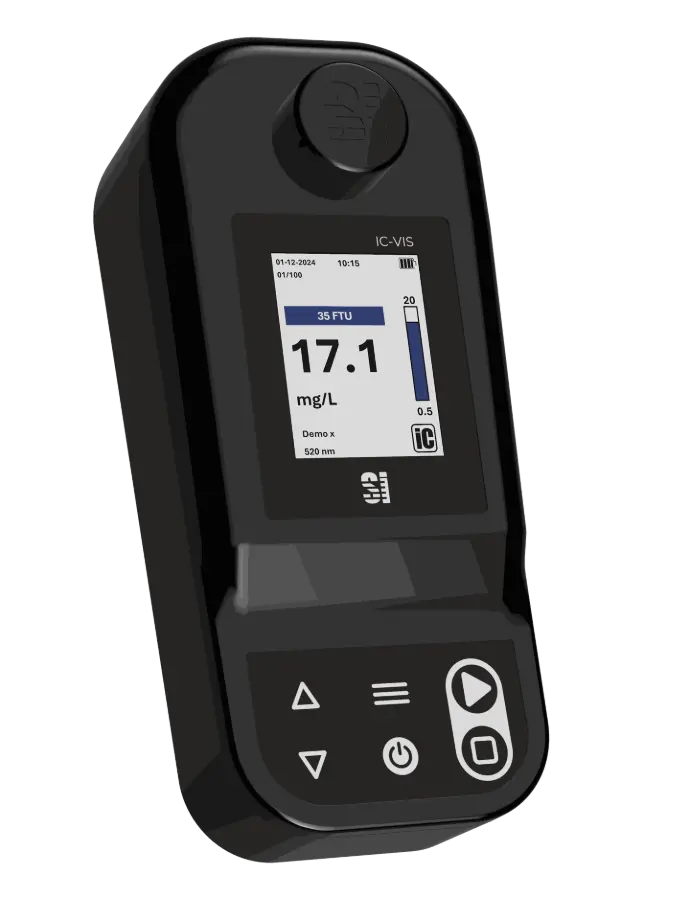
“The new analysis instrument has improved the reliability of our analyses and streamlined our work. This allows us to provide our customers with even more precise results” says Jacob Öiens, Laboratory Manager at QC West, which conducts analyses for Stena Recycling.
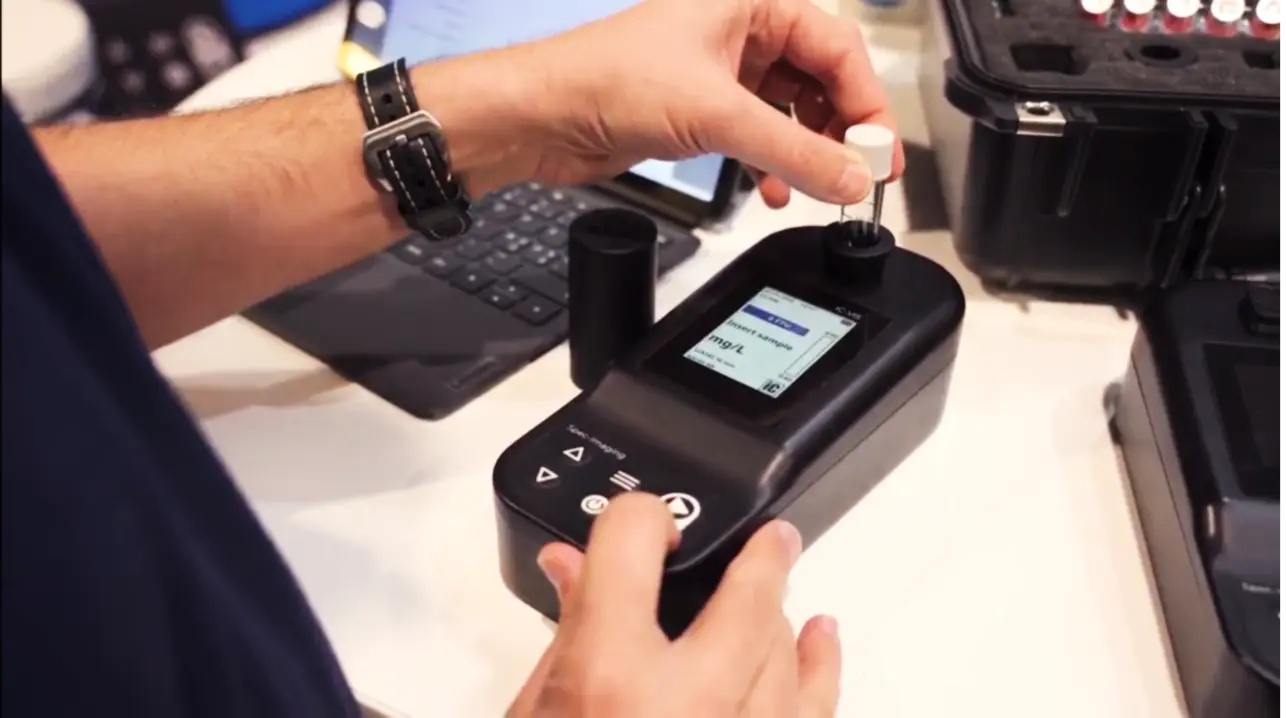
From Testing to Implementation
With IC-VIS, water samples can be analyzed efficiently—without the need for dilution or filtration—allowing results that more accurately reflect true water quality. As our technology eliminates the need to remove turbidity before analysis, it simplifies workflows and expands the range of measurable samples. Additionally, IC-VIS offers enhanced flexibility in measurement ranges, enabling the extension of many reagent-based methods for broader applicability. This capability minimizes operational costs, streamlines laboratory procedures, and ensures accurate readings even in the most challenging environments.
Advancing Toward Automated Real-Time Monitoring
Building on this success, Spec-Imaging and Stena Recycling are now taking the next step: developing solutions for continuous real-time water quality monitoring. This initiative aims to automate measurements directly in flowing water, making it possible to achieve reliable, high-frequency data in turbid environments where traditional methods struggle.
“We are continuously working to improve our real-time water quality analysis solutions and contribute to more efficient water treatment processes,” says Jan-Erik Andersson, Head of Business Area HW at Stena Recycling.
Through the fusion of cutting-edge technology and real-world application expertise, Spec-Imaging and Stena Recycling are paving the way for more sustainable and effective water management solutions.
About Stena Recycling
Stena Recycling is Sweden's leading recycling company and a comprehensive partner in developing sustainable circular solutions for all types of businesses. By keeping resources in circulation, Stena Recycling plays a crucial and central role in the transition to a circular economy.
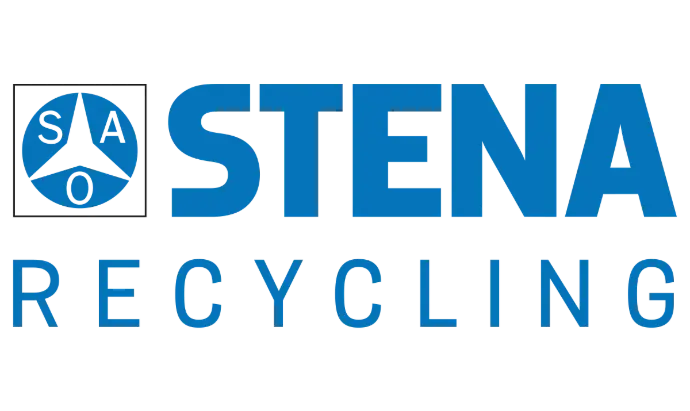
Advanced Measurement Capabilities with iC-Feature and Extended Range Calibration
The IC-VIS colorimeter simplifies water analysis with iC turbidity compensation, ensuring accurate measurements in turbid samples while reducing manual preparation. This feature speeds up lab work and enhances reliability. Additionally, extended method calibrations allow users to obtain accurate readings beyond the standard range while maintaining linear response, providing critical data that expands the instrument’s practical use in lab and process monitoring.
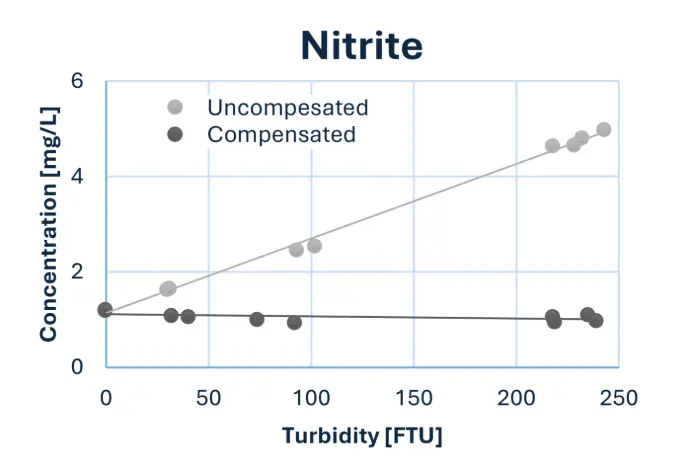
Figure 1: Example of turbidity compensation.
Samples were prepared with the same concentration of nitrite, but with different amount of turbidity. When the measurements are compensated, the results show the correct concentration ~1.1mg/L.
Turbidity Compensation with iC - instant Clarity
The iC-feature in the IC-VIS colorimeter automatically compensates for turbidity in your measurement sample, ensuring more accurate concentration readings of chemical components such as e.g. phosphorus, nitrate, and phenols. With iC turbidity compensation, the displayed result is adjusted to reduce bias caused by turbidity, providing reliable data even in challenging water conditions.
Upon delivery, the IC-VIS comes pre-configured with a standard iC turbidity compensation setting, optimized for most wastewater applications. However, it is also adaptable to specific customer requirements, allowing for customized compensation settings tailored to unique process conditions.
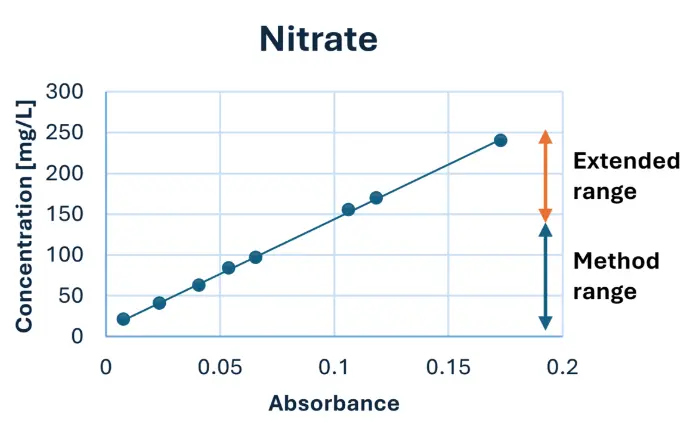
Figure 2: Example of extended method calibration.
Method calibration for nitrite measurement, specified in the range 20-150 mg/L, but calibrated all the way to 240 mg/L.
Method flexibility - extended method range
The IC-VIS features a comprehensive method library with a range of colorimetric methods that can be easily imported for various applications. Some methods are even calibrated beyond their standard range, where results remain linear, allowing for extended measurement capabilities. This provides significant benefits to customers, enabling greater flexibility and accuracy in their analyses, even in cases where concentrations exceed typical method limits.
Start with the customer – find out what they want and give it to them.